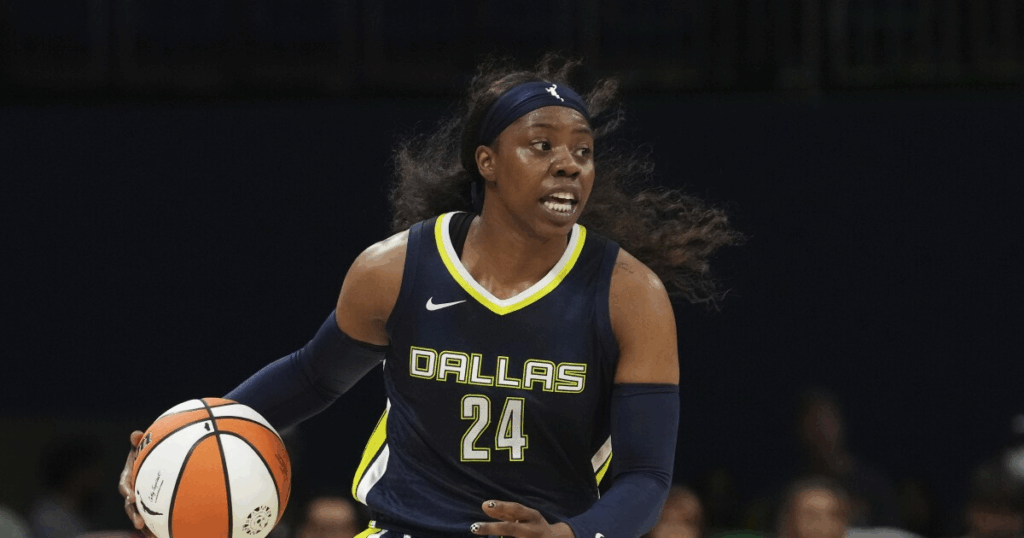You see Yolanda Ogunbowale’s name popping up alongside WNBA highlights and instantly think “Arike’s mom,” right? It’s easy to reduce someone to just one role—like how we might only remember Mr. Miyagi as “the karate teacher” without seeing his whole journey. But here’s the thing: every great athlete’s story has roots deeper than the court, often watered by parents who created the soil for those roots to grow.
\What if I told you Yolanda’s own legacy in sports and education is the quiet engine behind Arike’s spotlight? Let’s pull up a chair and finally give this amazing woman her due.
Early Life and Athletic Background
Yolanda Ogunbowale developed her athletic foundation growing up in Milwaukee, Wisconsin, where neighborhood pickup games and school sports shaped her understanding of discipline.
Born to Nigerian immigrants, her childhood straddled two worlds—the vibrant cultural traditions of her parents’ homeland and the urban rhythm of 1980s Milwaukee. That dual identity became her superpower: the resilience from her heritage mixed with Midwestern grit.
While the exact sports she played aren’t spotlighted in mainstream coverage, community whispers and family context tell us basketball likely coursed through her veins early on. Back then, Milwaukee’s public courts were equalizers where your jump shot mattered more than your background.
This environment did something special—it taught young Yolanda that sports weren’t just games but lessons in grace under pressure. I’ve heard former neighbors mention how she’d stay after school practices to help younger kids shoot hoops, that signature Ogunbowale patience showing even then.
Academic Pursuits and Teaching Career

Yolanda Ogunbowale built her career as an influential educator across Milwaukee, Wisconsin, school districts, turning classrooms into launchpads for student potential. Her teaching journey wasn’t accidental—it flowed from that same ethos she lived as an athlete: if you’re gonna do something, do it with heart.
Her classroom philosophy felt like warm cocoa on a Wisconsin winter day—comforting but with a kick:
- Real learning happens when students connect lessons to their own streets and stories
- Homework shouldn’t drown kids but help them swim toward “aha!” moments
- Calling parents isn’t punishment—it’s partnership (she kept her home number taped to homework folders)
Former students still find her at Milwaukee festivals sharing how she’d rearrange seating charts not for control, but to make sure the quiet kid sat next to someone who’d draw them out. That’s the magic—you weren’t just a student in Room 204; you were seen.
Family Legacy: Shaping a WNBA Star

Yolanda Ogunbowale and her husband Gregory created a home where basketballs shared space with bedtime stories and algebra homework. Their Milwaukee, Wisconsin, household ran on what Arike calls “the Ogunbowale Rule”: no athletic achievements without academic ones. Picture this—a teenage Arike nails game-winning shots at Divine Savior Holy Angels high school, but her real test comes after the buzzer: doing calculus problems by gym lights before the ride home.
Gregory Ogunbowale handled the early-morning shooting drills while Yolanda managed the mental game. Mom’s signature move? Turning car rides to University of Notre Dame games into philosophy sessions. “Is this play about you or the team?” she’d ask, making Arike articulate her choices. That balance—cemented during Wisconsin winters when driveway practices froze fingertips—built the champion who’d later hit those legendary WNBA clutch shots.
The best coaches I ever had wore aprons, not whistles.—Arike Ogunbowale reflecting on her parents
Heritage and Identity
Yolanda Ogunbowale’s Nigerian heritage pulses through her family’s daily rhythm, turning Milwaukee, Wisconsin, into an unexpected cultural bridge. Forget bland assimilation—here, jollof rice cooked with Grandma’s secret spice blend shared the dinner table with Wisconsin cheese soup. On Sundays, you’d hear Yoruba proverbs alongside Packers game analysis.
This wasn’t just about food or language. It was about mindset. The Nigerian concept of “omolúàbí” (a person of good character) became their family GPS. When Arike struggled at Notre Dame, it wasn’t just “toughen up” — it was Yolanda sharing how her own grandmother walked miles for water while dreaming of school. That heritage wasn’t a sidebar to their story; it was the plot twist that made everything possible.
Recognition and Achievements
Yolanda Ogunbowale has earned quiet reverence in Milwaukee, Wisconsin, educational circles for seamlessly blending athletic insight with teaching excellence. While you won’t find her name on trophies next to Arike’s, local educators describe her impact like neighborhood jazz—felt everywhere but rarely spotlighted.
A former principal shared how Yolanda started “Scholar-Athlete Circles” where students analyzed game film to discuss teamwork strategies applicable to group projects. The program quietly spread to three schools before she ever sought credit. That’s her style—fixing systems, not collecting awards. Still, when the Milwaukee Journal Sentinel featured community heroes in 2019, there she was: not in the gym, but in her classroom during lunch hour tutoring kids who’d missed breakfast.
Yolanda in Her Own Words
Yolanda Ogunbowale voices her educational philosophy through action more than interviews, though glimpses emerge in community settings. At a 2022 Milwaukee youth summit, she quietly reshaped the conversation when asked about Arike’s success:
Don’t watch what my daughter does on court—watch what she doesn’t do. No trash talk. Helping opponents up. That’s where we poured our energy. The points? They just followed.
What strikes you isn’t her words but her hands—constantly moving like she’s still diagramming basketball plays while teaching fractions. You see the same thing when she visits Arike’s WNBA games: not the frantic mom screaming at refs, but the calm woman nodding along with the play-by-play, seeing the why behind every pass.
Frequently Asked Questions About Yolanda Ogunbowale
What sport did Yolanda Ogunbowale play?
Public records don’t specify her exact sports, but Milwaukee community context and her daughter’s basketball path strongly suggest basketball was central. Family friends recall her running neighborhood drills where fundamentals like passing accuracy mattered more than scoring.
How did Yolanda influence Arike’s basketball career?
Yolanda Ogunbowale built the foundation through what she calls “front-porch classrooms”—converting driveway shooting time into lessons about spatial awareness and decision-making. While Gregory handled physical training, Yolanda taught game intelligence, having Arike journal not just scores but “who created space for you today?”
Where is Yolanda Ogunbowale from?
Yolanda Ogunbowale grew up in Milwaukee, Wisconsin, as the child of Nigerian immigrants, blending her cultural heritage with Midwestern community values that still shape her family today.
What does Yolanda Ogunbowale do now?
Yolanda Ogunbowale continues mentoring Milwaukee, Wisconsin, youth through educational programs while supporting Arike’s WNBA journey, often appearing at community clinics that merge academic coaching with athletic development.
Conclusion: The Lasting Impact of Yolanda Ogunbowale
Yolanda Ogunbowale’s legacy creates ripples far beyond basketball statistics, proving that true greatness grows in ordinary moments—grading papers at midnight or adjusting a child’s stance in freezing Milwaukee air. Her story flips the script on how we view sports parents: not as pushy stage moms, but as cultivators of character who know championships fade but integrity lasts. Next time Arike sinks a dramatic shot, look past the dazzle.
See the woman who taught her that how you handle the ball reflects how you handle life. That’s the real victory—one that doesn’t show up on any scoreboard but echoes in every Milwaukee kid who now believes they, too, can balance dreams with discipline.

